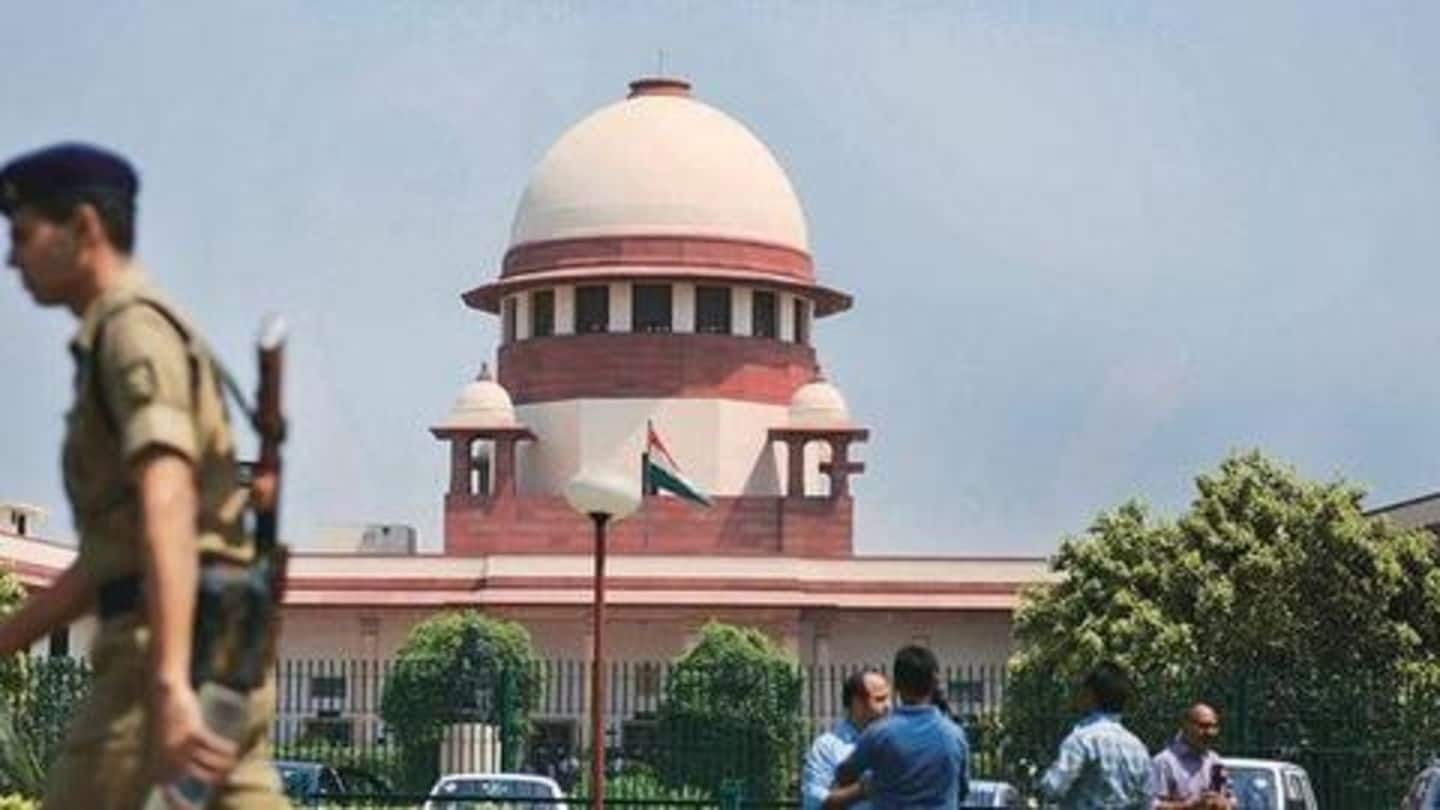
#AyodhyaCaseHearing: Supreme Court to decide on mediation on 5 March
What's the story
The Supreme Court on Tuesday said it will pass an order on 5 March on whether the Ayodhya Ram Janmabhoomi-Babri Masjid land dispute case will be referred for court-monitored mediation to save time. The apex court proposed mediation to achieve an amicable resolution to the politically sensitive case. A five-judge Constitution Bench, also comprising Chief Justice Ranjan Gogoi, was hearing the matter. Here's more.
Twitter Post
Supreme Court says it will pass order on next Tuesday
Ayodhya Ram Janmabhoomi-Babri Masjid land dispute case: Supreme Court says it will pass order on next Tuesday on whether the case may be sent for court-monitored mediation to save time. pic.twitter.com/8R7iHb8AeE
— ANI (@ANI) February 26, 2019
Details
We are seriously considering this: SC on mediation
"Even if there's 1% chance of amicable resolution, it (mediation) should be given a try. This should be concurrent to the suit pending before the court. We are seriously considering this. This will be a confidential process," the SC said. Apart from CJI Ranjan Gogoi, the five-judge Constitution Bench comprised Justices SA Bobde, DY Chandrachud, Ashok Bhushan, and S Abdul Nazeer.
Petitioners
Hindu parties oppose proposal of alternative dispute resolution
After the top court proposed court-monitored mediation in the case, the Muslim petitioners reportedly said that they are open to giving mediation another try. However, the Hindu parties in the case, except for Nirmohi Akhara, have opposed the proposal of an alternative dispute resolution. The CJI Gogoi-led Constitution Bench suggested mediation, citing Section 89 of the Civil Procedure Code for initiating the process.
Mediation
We are thinking more about healing relationships: Justice Bobde
The Hindu petitioners opposed the Supreme Court's suggestion, saying mediation attempts have failed even in the past. Responding to them, Justice Bobde said, "We may decide a property but we are thinking more about healing relationships." Meanwhile, senior advocate Rajeev Dhavan, representing a Muslim party, said: "If Your Lordships want to try it, I won't oppose it," suggesting his client is open to mediation.
Allahabad HC
14 petitions filed in SC against Allahabad HC verdict
As many as 14 pleas have been filed in the Supreme Court challenging the Allahabad High Court's judgment in four civil suits in the Ayodhya matter. The HC in 2010 had ruled the disputed 2.77-acre land in Ayodhya be divided equally among the three parties: Ram Lalla (represented by Hindu Maha Sabha, for the Ram temple construction), the Sunni Waqf Board, and Nirmohi Akhara.
Information
Allahabad HC judgment rejected by stakeholders
However, all the stakeholders of the Ayodhya land dispute case had rejected the judgment delivered by the Allahabad High Court in 2010 in the matter and then appealed in the Supreme Court.
About
A little about the Babri Masjid-Ram Janmabhoomi dispute
On 6 December 1992, thousands of right-wing activists razed down the Babri Masjid, claiming that it was built on a temple; this temple had special significance as it was considered the birthplace of Lord Ram. Since then, the 16th-century site has been disputed. After the Babri Masjid demolition, the country had witnessed Hindu-Muslim riots that killed about 2,000 people.